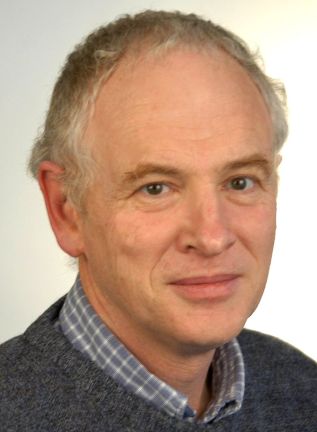The British House of Commons today issued a report exonerating Professor Phil Jones, the director of the Climatic Research Unit at the University of East Anglia. Dr. Jones was embroiled in controversy following the theft of internal emails and documents from the University’s servers in November of last year.
The report states that “the focus on CRU and Professor Phil Jones, Director of CRU, in particular, has largely been misplaced,” and that Dr. Jones’s actions were “in line with common practice in the climate science community,” and the CRU’s “analyses have been repeated and the conclusions have been verified.”
The review by the House of Commons’ Science and Technology Committee began in January in the wake of the ‘Climategate’ media frenzy. While the committee’s report recommends that climate scientists should seek to improve transparency in their work, release raw data when possible, and provide more detail on their methodologies, the committee firmly concludes that there was no dishonesty on the part of Dr. Jones and the CRU. The committee compared the results of other independent analyses of climate data to that of the CRU, and found that they are consistent and independently verifiable.
From a statement released by the committee to the press today:
“The focus on Professor Jones and CRU has been largely misplaced. On the accusations relating to Professor Jones’s refusal to share raw data and computer codes, the Committee considers that his actions were in line with common practice in the climate science community but that those practices need to change.
On the much cited phrases in the leaked e-mails—“trick” and “hiding the decline”—the Committee considers that they were colloquial terms used in private e-mails and the balance of evidence is that they were not part of a systematic attempt to mislead. Insofar as the Committee was able to consider accusations of dishonesty against CRU, the Committee considers that there is no case to answer.”
Even if the data that CRU used were not publicly available—which they mostly are—or the methods not published—which they have been—its published results would still be credible: the results from CRU agree with those drawn from other international data sets; in other words, the analyses have been repeated and the conclusions have been verified.
The committee’s report [PDF] provides detailed responses on each of the issues raised in its investigation.
On the matter of Dr. Jones’ use of the phrase “trick” in an email referring to Michael Mann’s Hockey Stick graph, the Committee concludes:
“Critics of CRU have suggested that Professor Jones’s use of the word “trick” is evidence that he was part of a conspiracy to hide evidence that did not fit his view that recent global warming is predominately caused by human activity. The balance of evidence patently fails to support this view. It appears to be a colloquialism for a “neat” method of handling data.”
On the matter of Dr. Jones’ email including the phrase “hide the decline”, the Committee concludes:
“Critics of CRU have suggested that Professor Jones’s use of the words “hide the decline” is evidence that he was part of a conspiracy to hide evidence that did not fit his view that recent global warming is predominantly caused by human activity. That he has published papers—including a paper in Nature—dealing with this aspect of the science clearly refutes this allegation. In our view, it was shorthand for the practice of discarding data known to be erroneous.”
On the matter of whether Dr. Jones suppressed or perverted the peer review process, the Committee concluded:
“The evidence that we have seen does not suggest that Professor Jones was trying to subvert the peer review process. Academics should not be criticised for making informal comments on academic papers.”
The report goes into further detail on Freedom of Information requests and other issues, culminating in a set of recommendations for improving data access and transparency at CRU and increased transparency in the scientific community at large to ensure that the science remains “irreproachable.”
Download the full report: “The disclosure of climate data from the Climatic Research Unit at the University of East Anglia.”
Subscribe to our newsletter
Stay up to date with DeSmog news and alerts






